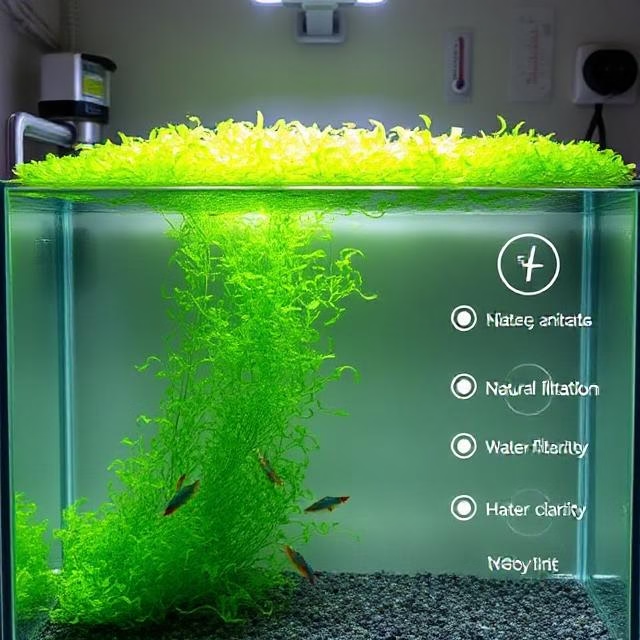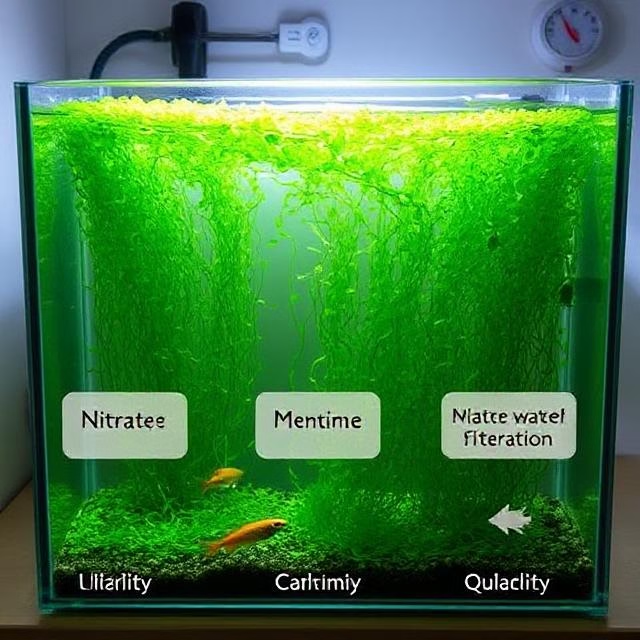
When it comes to balancing water quality in aquariums, duckweed in aquarium setups has become a rising trend among both beginners and experienced aquarists. Known for its small floating leaves and rapid growth, duckweed can be more than just a green cover—it can transform your tank’s health. But how exactly does it help with duckweed water quality, and what should you watch out for?
This article explores the role of duckweed in achieving the desired water quality in freshwater tanks, along with how it supports filtration, nutrient control, and overall fish wellness.
What Is Duckweed and Why Is It Used in Aquariums?
Duckweed is a fast-growing aquatic plant that floats on the surface of water. Its ability to multiply quickly makes it an ideal natural filter. When managed correctly, it improves aquarium water parameters and adds a natural touch to any tank.
Benefits of Duckweed in Aquariums
Including duckweed in your setup comes with many benefits:

✅ Natural Filtration
Using duckweed filtration helps reduce waste buildup by absorbing excess nutrients, especially nitrate levels in aquarium water.
✅ Oxygen Boost
Healthy duckweed contributes to oxygen levels in tank, especially during light hours, supporting the fish tank water cycle.
✅ Shade and Comfort
It offers shade for aquarium fish, reducing stress and mimicking their natural habitat.
✅ Nutrient Absorption
It helps in phosphate reduction in tank and improves ammonia absorption duckweed by pulling these harmful compounds from the water.
How Duckweed Affects Water Quality
To keep fish healthy, maintaining proper duckweed water quality is essential. Let’s break down the core areas it impacts:
📉 Reduces Nitrates and Phosphates
Duckweed actively absorbs nitrates in planted tank and lowers phosphate levels in tank, helping to prevent algae blooms.
🌡️ Regulates pH and Hardness
By affecting pH stability in aquariums, it helps keep conditions stable. This also supports better aquarium water hardness control over time.
🌿 Supports Nitrogen Cycle
A strong duckweed nitrogen cycle reduces toxic buildup of waste materials like ammonia and nitrites.
Best Water Conditions for Growing Duckweed
If you want duckweed to thrive, you need to provide ideal duckweed growth conditions:
| Factor | Ideal Range |
|---|---|
| Temperature | 18°C to 28°C (64°F to 82°F) |
| Light | Moderate to high lighting |
| pH Level | 6.5 to 7.5 |
| Water Flow | Low |
| Nutrients | Balanced trace nutrients |
Duckweed tank parameters should be regularly checked to avoid overgrowth or plant die-off.
How to Control Duckweed Growth
Even though it’s beneficial, duckweed can grow too fast. Here’s how to manage it:
- Manual Removal: Skim off excess plants weekly
- Introduce Duckweed-Eating Fish: Like goldfish or mollies
- Limit Nutrients: Avoid overfeeding your fish
Proper duckweed management tips help balance its growth while maintaining its benefits.
Duckweed and Other Plants
Duckweed is compatible with many other plants, but it may block light. Using duckweed surface coverage tips like moving it to a corner with air stones or floating dividers helps other plants grow better.
Common Questions About Duckweed in Aquariums
Is duckweed good for all fish?
Most small fish benefit from the cover, but some may eat or uproot it.
Does duckweed need CO₂ injection?
No, duckweed does not require aquarium CO2 balance systems. It grows fine with natural levels.
Can duckweed clog filters?
Yes, which is why using duckweed maintenance tools like mesh guards can help.
Final Thoughts: Should You Add Duckweed?
If you’re looking to improve water quality, reduce nitrate, and enhance the look of your aquarium, duckweed can be a perfect choice. With proper care, it becomes a silent worker in maintaining a healthy tank environment. Just make sure to manage its growth and monitor duckweed tank health indicators to keep your aquatic system in balance.
